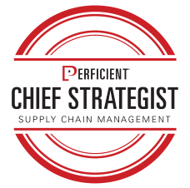According to Investopedia, “Sustainability focuses on meeting the needs of the present without compromising the ability of future generations to meet their needs. The concept of sustainability is comprised of three pillars: economic, environmental and social – also known informally as profits, planet, and people.”
Interestingly enough, the business of sustainability can be viewed as a barometer of success. Analysis by Corporate Knights and Thomson Reuters Datastream found that companies that have more ethical operations are more profitable and valued than their competitors. Investors are increasingly evaluating a company’s sustainable business practices before they buy shares.
While the impact of sustainability can increase profits, today’s consumers want to do business with companies that are not simply profit-driven.
They want relationships with socially conscious organizations. Therefore, companies should remain steadfast in developing and enhancing a sustainability program that advances their strategic values and priorities.
Many industry leaders have embarked on sustainability initiatives in an effort to improve their businesses. For example, Wal-Mart’s corporate responsibility efforts, which are aimed at building customer trust and strengthening societal systems, have added a lot of business value. The iconic consumer goods powerhouse is on track to reduce 1 billion metric tons of emissions from global supply chains by 2030.2
As supply chain organizations look to improve their operating efficiencies over the next three to five years, leaders should consider the impact of social, economic, and regulatory forces.
Organizations must frequently evaluate opportunities to save money, especially as it pertains to the supply chain. Changes seen as “green” supply chain initiatives can provide previously untapped opportunities to eliminate cost and potentially gain market share.
Ultimately, companies must determine if sustainability programs will be a priority or if they will merely remain compliant with the laws that are set in place. Either way, current trends indicate that social responsibility and legislative changes will force companies to change how they operate. Organizations that take a proactive approach to sustainability will achieve better results.
To learn more about developing and implementing a sustainability program into your business, you can download our guide here. Or, you can download the guide below.

